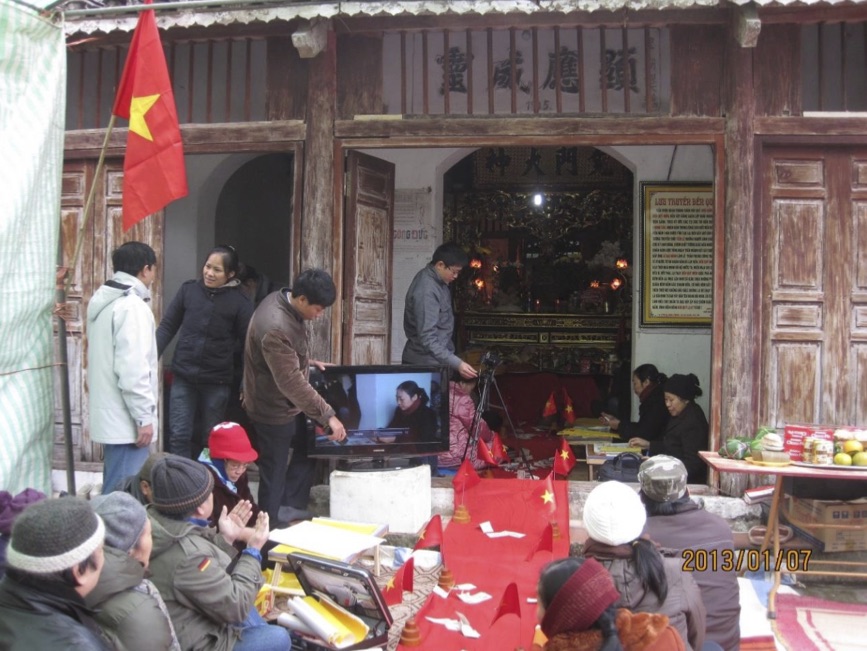China Research Seminar Series talk given by Dr Tam NGO, Max Planck Institute, Göttingen and NIOD (Netherlands Royal Academy of Arts and Sciences), Amsterdam
This paper focuses on a category of rituals recently revitalized and are extremely popular among Vietnamese spiritualists that express strong anti-Chinese sentiments: giải yểm or the undoing of Chinese hexing (trấn yểm). Practitioners believe that China, through its agents in the millennia of colonizing Vietnam (111BC-938AD) and the subsequent history of tributary relations had on multiple occasions hexed (trấn yểm) Vietnam by planting objects or even human bodies into the important ‘dragon vein’ of Vietnam with the mal-intention of cutting off the vital force of Vietnamese national sovereignty. This imagined “China” refers simultaneously to contemporary China as an overpowering and threatening neighbor and to Chinese civilization as one of the main sources of Vietnamese civilization. Chinese geomantic crimes have been fought by generations of Vietnamese, both the living and spirits. Giai yểm practitioners see themselves as contemporary warriors who continue the task of spiritual decolonization from China. Sinophobic sentiments and ritual actions in Vietnam originate from a mix of widespread ‘cartographical anxiety’, ‘civilizational insecurity’, and a political distrust of both the internal Other (a fraction of the Vietnamese ruling Communist Party) and the external Other (Chinese Communist Party).
Dr Tam NGO is a senior, permanent fellow of the Max Planck Society (Germany) and the NIOD (Netherlands Royal Academy of Arts and Sciences). She is the author of The New Way: Protestantism and the Hmong in Vietnam (2016, University of Washington Press) and co-editor of Atheist Secularism and Its Discontents: A Comparative Study of Religion and Communism in Eurasia (2015, Palgrave Macmillan). Her research focuses on the role of religion and science in social healing, environmental reparation, and the politics of reconciliation in the context of postwar Vietnam. As a social anthropologist, she builds her theoretical framework with ethnographic settings ranging from, on the one hand, postwar South and North Vietnam, Vietnamese refugees in Europe, Hmong refugees in the US, and Vietnamese Chinese refugees in China, to, on the other hand, different circles of DNA forensic experts working on human identification and genetic and environmental footprints of the Vietnam War. Currently she is directing the research program “Bones of Contention: Technologies of Identification and the Politics of Reconciliation in Vietnam” while completing her second monograph on the social memory of the 1979 Sino-Vietnamese border war in China and Vietnam. She has published widely on various aspects of postwar Vietnam, from mass conversion to Christianity, atheist secularism, war memory and religious nationalism, religion, and peace, Buddhism in the Vietnamese diaspora, the popular deification of Ho Chi Minh, sacred geography, and spiritual warfare.
| Contact |
|---|
| Professor Adam Yuet Chau: ayc25@cam.ac.uk |

